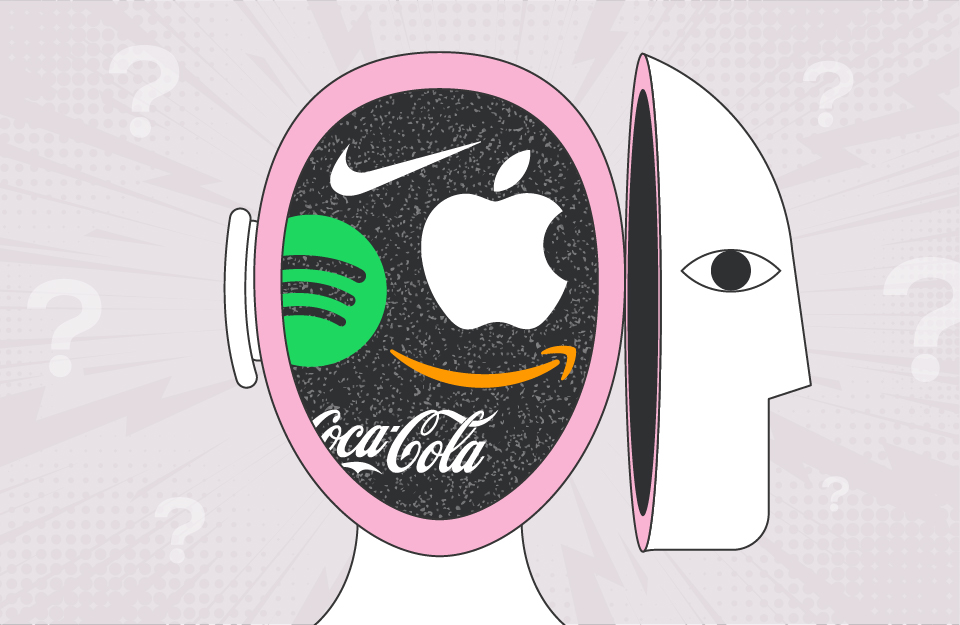Let’s face it, many of us are concerned about how tech giants like Google and Facebook use (and abuse) our data.
Both companies are secretive about how they use our data, and they’ve turned us into their product without ever outright asking our permission.
Naturally, we’re pissed off annoyed about this.
As a result, forward-thinking companies like Apple are harnessing our negative sentiment to their competitive advantage.
The recent iOS 14.5 update, for instance, introduced a feature that blocks apps like Google and Facebook from tracking users’ online behaviour by default.
Bad news for FB and the big G. Big win for iPhone users.
That said, advertising is essential.
We might not like that Google and Facebook track us, but we do like using their products.
If we’re unwilling to pay for the convenience of search and social media apps, advertising is the only way providers can generate revenue to operate.
Data makes advertising effective. Effective advertising attracts advertisers. Advertisers keep Google and Facebook’s lights on, ensuring your most-used apps are free.
We have a dilemma on our hands. We don’t want companies abusing our data, but we also don’t want to pay for their products.
So, what’s the solution?
Well, a little-known startup who’s recently made headlines with a phenomenal Dragon’s Den pitch thinks they have it.
“Control and be rewarded for your data”
That’s the tagline for Gener8, an ambitious website browser startup looking to disrupt digital advertising with a business model that rewards users in exchange for their data.
Before we get into that, though, check out their mesmerising pitch below.
Impressive, right?
If you don’t have time to watch the full video, here’s a summary.
Gener8 have created a browser that gives users two options:
- Browse in an ad and tracker-free private mode.
- Enable ads and tracking to receive points that you can exchange for products, exclusive discounts or charitable donations.
According to the companies founder, Sam Jones, Gener8 give 80% of ad revenue to users, taking a modest 20% cut for themselves.
Jones predicts an average Gener8 user could expect £10-15 in rewards each month.
It’s not going to buy you a shiny new Lamborghini, but it’s not bad for just browsing the web.
You’re already doing that anyway, so you might as well get paid for it.
Here’s how it works
If you opt for the ad version of Gener8, the platform will ask you to fill in a few details about the types of advertising you’d like to see.
As with FB and Google, Gener8 monitors your browsing behaviour and builds a profile about you from the data it collects.
This information helps advertisers determine whether you’re a good fit for their ads or not. In theory, Gener8 should only serve you ads you care to see.
And, according to the company’s privacy statement, your profile is anonymised, protecting you from potential data breaches.
This model represents a massive shift in the data power dynamic.
Right now, advertisers have most of the control over what you see.
In Facebook, for example, an advertiser decides who sees their content based on inbuilt targeting tools. Users have no control over this.
Sure, we can flag ads we don’t want to see. But, when we’re served an ad for every 3 or 4 organic posts, we’re hardly going to do that laborious process repeatedly. Ain’t nobody got time for that.
Conversely, Gener8 appears to put all the power where it belongs; in the user’s hands.
It’s your data, after all. Shouldn’t you be the one in control of how companies use it?
It’s been a long time coming
Twitter’s eccentric CEO, Jack Dorsey, predicted this shift.
He stated in a 2020 interview that:
“a better option [for how social media platforms work] is providing more choice to be able to turn off the algorithms or choose a different algorithm so that people can see how it affects ones’ experience.” Source: TechCrunch
While he’s not talking about ads specifically, he does predict a shift in the way social platforms work to give users more control over how social media handles data.
In fairness, it’s great to see a CEO accepting fault and suggesting a path to a better future, even if the proposed changes are 20 years too late.
However, the big concern for Gener8 is that businesses like Google and Facebook have a habit of squashing their competition before they become a threat.
One of the companies will likely try to buy Gener8 out or leverage its clout to take them down.
If the first scenario were to happen, we should expect the buyer to alter Gener8’s generous business model, taking a more significant cut for themselves.
On the flip side, they could prevent Gener8 from taking off. Then, none of us would ever benefit from having control over and making money from our data.
Neither scenario is in the users’ best interests.
Is this the future?
While Gener8’s enthusiasm and mission are refreshing, they still have a long and challenging road ahead.
But, since data is the worlds biggest commodity right now, the problem they’re facing isn’t going to disappear anytime soon.
With a solid marketing and business development strategy, they could give the digital advertising space a well-needed shakeup.
This type of disruption would benefit almost all of us–excluding the big tech giants, of course.
Users would rightfully receive compensation for their data AND have the choice to share it or not.
Marketers, businesses, and advertisers could advertise effectively AND with clear consciences.
Will Gener8 revolutionise digital advertising? That question is ultimately for the market to decide. Assuming the company isn’t taken down by a competitor first.
It strikes me that the biggest hurdle Gener8 face is that consumer trust is at an all-time low. We no longer trust businesses to operate honestly and with integrity.
If Gener8 can convince users that their intentions are pure and then maintain our trust with a quality service that genuinely delivers on its promise, who knows, they might just change the game.
Here’s hoping they can because it’s about time someone did.




